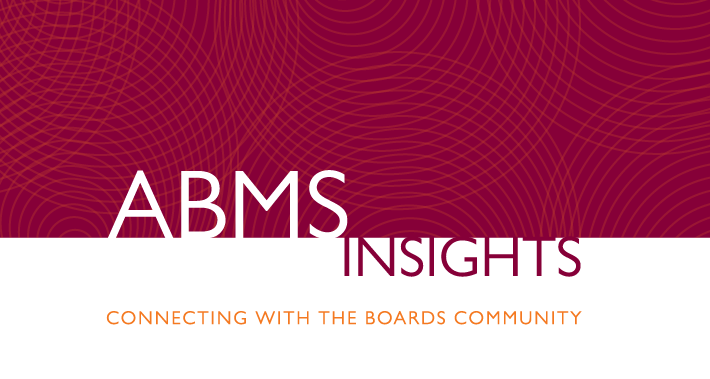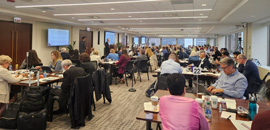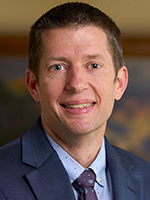
The American Board of Medical Specialties (ABMS) has established learning communities to assist its Member Boards as they consider the benefits and implications of competency-based medical education (CBME) across the specialties.

First came the Accreditation Council for Graduate Medical Education (ACGME)-ABMS CBME Learning Community convened in February 2022. The group’s goal is to accelerate the development of and transition to CBME in graduate medical education (GME) in the United States.
Steps to obtaining this goal are recognizing the role and importance of the five essential core components of CBME in GME (See CBME and Certification: Essential Partners for Improving Health and Health Care.) as well as to identify the policy, financial, and administrative facilitators that have empowered the spread and innovation in CBME and, conversely, those that have inhibited its growth.

Another task is recommending changes in ACGME and ABMS policies and procedures that promote innovation and reduce or eliminate barriers to CBME. “Residency and fellowship training need to fit together hand-in-glove,” stated Greg Ogrinc, MD, MS, Senior Vice President of Certification Standards and Programs at ABMS. “The processes and oversight of residency and fellowship accreditation and physician and specialist certification are independent of one another, but they are related,” he explained. While ACGME accredits residency and fellowship training programs that create learning and work experiences for individuals to be prepared to practice a specialty, ABMS and its Member Boards define the criteria and administer assessments for being certified as a specialist. “It is imperative that the development of each part, and any major change in each part, be informed by and aligned with all other parts,” Dr. Ogrinc added.
Working within and across specialties is essential to creating an action plan that supports innovation and widespread implementation of CBME, he said. To that end, the Learning Community has held a combination of virtual and in-person meetings; two in 2022, three in 2023, and three are planned for 2024.
In addition, in March ABMS established the CBME Interest Group designed for Member Boards to share and compare practices for collaboration, development, financing, administration, and validation of CBME in each specialty. The boards wanted a forum in which to discuss the intricacies and impact of CBME among themselves and to collaborate on strategies for understanding the impact of CBME in GME on ABMS Member Board certification,” Dr. Ogrinc said. Two meetings were held this year and two are planned for 2024.

An offshoot project of the Interest Group is a primer being developed for the Member Boards. While some specialties are incorporating a CBME approach into their training programs already, others are still learning the terms and determining whether and how to get started, Dr. Ogrinc explained. The primer, which includes guiding principles, a CBME framework, and key references, will be especially helpful for the boards taking those first steps. “As we advance our CBME efforts as a Member Board community, this primer will provide a common conceptual framework and shared language when we discuss CBME,” said David Turner, MD, Vice President of CBME at the American Board of Pediatrics, who co-leads the Interest Group with Dr. Ogrinc.
The work of these learning communities is about creating an environment in which each specialty can develop a CBME pathway that works best for them, Dr. Turner said. It’s important that the Member Boards define the outcomes necessary for completing training that will then be incorporated into the certification process. The approaches and methods used should strike a balance between being adaptable to the unique needs of the individual specialty practices and being consistent across the Member Boards community.
These efforts to advance CBME do not represent a specific mandate, but are a genuine collaboration among ABMS, ACGME, and the Member Boards with the goal of better defining and aligning the expected clinical and learning outcomes at the conclusion of training with those required for certification. This model also provides a framework for lifelong learning that prioritizes the needs of patients. To that end, the Member Boards must work with education leaders within each specialty; residency program directors; designated institutional officials; specialty societies; and ABMS Associate Members, such as the American Medical Association and Association of American Medical Colleges; among others, Dr. Ogrinc said. “As with any major change in an established system, it requires an understanding that the proposed change is an improvement on the current status,” he concluded. “It can be difficult to stop doing the things that we are used to, even if we recognize that the new process is a better value.”
